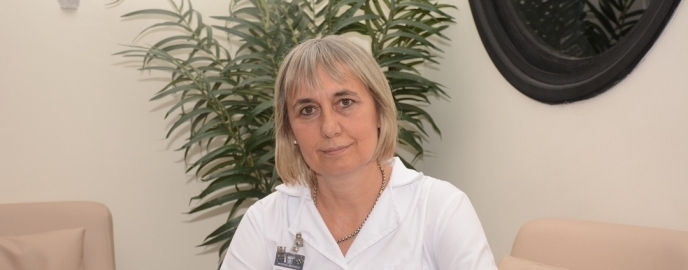MEDIO DE PUBLICACIÓN
Diario EL PAÍS 24.05.17
El Hospital
Prensa
El Hospital Británico amplía su Unidad Neonatal

La Unidad cumple quince años e inaugura una ampliación que incluye nuevas tecnologías. Coincidiendo con la celebración del 160 aniversario del Hospital Británico, su Unidad Neonatal cumplirá 15 años y hará lo propio inaugurando una ampliación que incluirá la incorporación de nueva tecnología para la atención neonatal de los niños con hasta 28 días de nacidos y pediátrica los de mayor edad. La celebración del 160 aniversario del Hospital Británico es una buena oportunidad para recorrer el Hospital Británico y hacer una puesta al día de sus distintas áreas, logros y objetivos. En la Unidad Neonatal reciben asistencia unos 220 pacientes por año; en el caso de los recién nacidos el período promedio de internación es de 14 días, mientras que en el CTI pediátrico es de apenas 4 días. La Unidad Neonatal del Hospital Británico “es una unidad polivalente, que no solo atiende recién nacidos sino también niños de hasta 15 años”, ya que es, a su vez, el Centro de Tratamiento Intensivo Pediátrico, explicó la doctora Alicia García, coordinadora del área. La población de la Unidad Neonatal responde mayoritariamente a los bebes nacidos de forma prematura, con menos de 38 semanas de gestación, lo que puede darse por distintas razones, como los embarazos múltiples. A los niños nacidos antes de término se les brinda en la Unidad Neonatal la asistencia de los meses o semanas que faltaron en el útero, para superar por ejemplo la inmadurez respiratoria, la piel delicada, así como otras carencias de maduración que se puedan presentar. La unidad cuenta en la actualidad con 9 camas -7 neonatales y 2 pediátricas- y en unas semanas, con la ampliación en curso, pasará a tener 14 -10 neonatales y 4 pediátricas. A su vez, incorporará tecnología del primer mundo para asistencia respiratoria mecánica, a ser utilizada en casos específicos de insuficiencia respiratoria grave. A la mayor cantidad de incubadoras y termocunas, se sumarán también más ventiladores, con distintas prestaciones para asistir las diversas patologías que se puedan presentar. En la Unidad Neonatal las infecciones hospitalarias tienen un nivel cercano a cero lo que es fundamental para la asistencia a inmunodeprimidos. Asimismo los índices de sobrevivencia presentan muy buenos valores comparados a nivel internacional. También está planificada la incorporación de un equipo para realizar hipotermia, que permite llevar el organismo del recién nacido a temperaturas cercanas a los 33 grados para proteger el cerebro cuando sufrió asfixia durante el parto. Se incorporarán asimismo nuevos monitores con una pantalla que centraliza todos los controles vitales. García destacó la valía del equipo profesional que lidera, compuesto por 29 médicos, 14 licenciados y 17 auxiliares de enfermería. Todos los días del año, durante las 24 horas, hay un neonatólogo y un intensivista de guardia. “Nada de esto se puede aplicar adecuadamente sin un equipo profesional, de enfermería y médicos, que se destaca tanto en lo técnico como en lo humano”, sostuvo la Coordinadora de la Unidad Neonatal del Hospital Británico.

